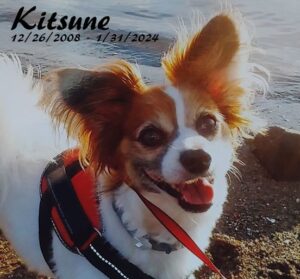Buying a kitten is a lot different than buying an older cat. Before you rush out and buy or take the first kitten that is offered to you, there are a few things that you should know.
As with any animal, there are certain things that you should look for to make sure that the kitten is healthy. By paying attention and looking for these different things, you might be able to save yourself and your family from picking a kitten that is going to be quite sickly or even die.
What Do You Need To Check Before Getting A New Cat?

Here is a list of things that you need to look for in any kittens that you are considering buying:
- Make sure that the kitten has clear, bright eyes.
- Look to see if the ears and nose are clean and not gunky.
- Look for a thick and shiny coat.
- You don’t want any skin that has fleas, scaly patches, or any types of lumps.
- Open the mouth of the kitten and look for firm, pink gums.
- Observe the kitten to make sure that they are attentive and playful.
Next comes the asking of the pet shop or breeder who is trying to sell you the kitten. You need to ask them certain questions that they should have no problems answering. If they try to avoid you or put your off it might be a good sign that you need to move onto a different pet shop or breeder:
- Ask about the kittens vaccinations.
- Ask about parasite checks.
- Have them tell you the age, gender, and breed of the kitten.
- Do not buy a kitten that is not at least six to eight weeks old.
- Ask about their diet and nutrition.
- Have them provide you with the Veterinarians name, number, and address.
- If you are looking at a purebred, ask about the kitten’s registration papers.
- Ask if you can have your own veterinarian check the kitten out before you buy it.
If the pet shop or breeder is reputable they should not have a problem answering any of these questions or letting you take the kitten to your own veterinarian for a checkup. Just remember that you can always find another pet shop or breeder that has the kitten you are looking for if something doesn’t seem quite right.
Are you new to the kitty world? You must educate yourself in order to choose the right cat for you. Here you go: Owning A Domestic Cat 101: Selecting A New Cat Or Kitten
Dealing With Your New Kitten

If you are choosing to buy or get a kitten there will be quite a bit of training to do, just like with a baby, the kitten has to learn. The first lesson that will make life a lot easier for you and your kitten is litter box training. This really shouldn’t be too hard of a lesson for either of you since most kittens take to the litter box quite naturally.
What is important to note is not to be in your kittens face while he or she is trying to do their thing. Patience is the key to any type of training, and this is not different. Of course, there are a few things that you can do in order to help this be an easy experience for your kitten:
- Make sure that your kitten can climb in and out of the litter box; sometimes they will have trouble in a litter box that is too big.
- Put the litter box in a quite area that is always accessible.
- Clean the litter box on a daily basis and keep the litter changed regularly.
- In order to establish a pattern, make sure you put your kitten in their litter box when they wake up and after they eat.
- Everyone benefits from being told they did a good job, kittens are no different, make sure to let them know when they have done a good job.
- Keep the litter box in the same place, don’t move it around.
- If you have more than one cat, make sure they all have their own litter box.
You might have heard your friends or family talk about baby proofing their home when their child began to be mobile, if you plan on getting a kitten you will find yourself doing the same thing. A kitten is in essence a baby, but of the feline persuasion, as such they are just as curious as any other type of baby. You need to take the time and look at your home from a kitten’s perspective, find possible hazardous items, and remove them accordingly.
You aren’t going to be able to anticipate everything, but it is quite advantageous to the health and well being of your kitten to take some precautions:
- Kittens can be quite clumsy, make sure that all of your windows are secured and keep your kitten off of anything high such as a second story house walk out.
- Move all cleaners and anything else harmful in an area that your kitten can not access. This goes for any harmful plants as well, just as with a baby, kittens will chew on whatever is handy such as a plant.
- After you use the restroom, close the toilet lid. This is a handy piece of advice if you have kittens or small children in the home.
- Don’t leave plastic materials such as trash bags or plastic storage bags lying around, again helpful for kittens and children.
- After you have finished your six pack of beer or soda, cut up the plastic ring containers so that your cat doesn’t get caught up in them. This is also an environmentally kind thing to do so other animals don’t share a bad fate.
- Anything electric, sharp, or pointy needs to be responsibly stored so your kitten doesn’t decide to make a dangerous object its next chew toy.
Introducing The New Kitten To The Family

If you have children or other animals in the house you will need to make sure that your kitten is introduced to them slowly and properly. Older children are not as much of a concern as small children are. You need to make sure that they understand the proper way to treat their new kitten. You need to teach them how to hold it properly and not to pull on its legs, face, tail, or ears.
Young children must learn that the kitten is a living thing that they need to treat with love, care, and respect. You can help you kitten feel a little safer by getting down to his or her level when it comes to play time. This will make you not seem quite so huge and scary to the kitten.
You also need to pay close attention how other pets in the house treat the new kitten. It is not a good idea to simply leave a new kitten with an older cat or dog. Take the time to introduce them to one another while being attentive to their reactions to each other. Normally older cats will be tolerant of the new kitten and even tend to it after they are comfortable with one another.
Dogs may take a little longer to get used to the situation of a new kitten in the house. Just remember to be patient and to make sure your other animals in the house gets the love and attention that they need, make them feel just as special as the new kitten. Here are a few tips that might help you with this process:
- Don’t rush your animals to get along, take it slow and easy.
- It might be wise to keep the kitten in its carrier for the first little bit while the others animals can sniff around it without making direct contact with the kitten.
- Get a new toy and put the kittens scent on it, and vice versa with the older cats or dogs, then give it to the opposite parties so they can become accustomed to the scent.
After doing some of these steps for a while, everyone should begin to get along with little disturbance in the house.
Getting Supplies For Your New Cat

Anytime you choose to get a new pet, you need to make sure that you have everything you will need to take care of that pet with. Cats need certain things so before you get your cat or kitten, you might want to make sure they have everything they need before they come to your home.
Although these seem like simple items, if you have never owned a cat there are certain things to consider before you go out and buy the most expensive of everything.
The food and water bowl does not have to cost you a fortune. You do not have to go out and buy one with your pet’s name on it unless you want to. Mainly they just need to be easy to clean and heavy so they won’t tip over easily. Because it is possible that your cat might be allergic to plastic, it might be a good precautionary note to opt for the stainless steel bowls. You also need to make sure that your cat has food and water in their bowls as well.
Unless you plan on teaching your cat how to use the toilet like in a popular movie, you will need to purchase a litter box and everything that goes in it. This involves the litter box, the scoop, and the litter. If you have a kitten it is important that the litter box is not so big that they cannot get into it, but on the other hand you need to get a litter box that is big enough for a full grown cat.
What many cat owners may not know is that the litter boxes that have hoods or covers may actually trap foul smelling odors and make your cat unwilling to further use the litter box, so it may be a good idea to avoid these altogether.
Another helpful tip is to keep some sort of garbage container next to the litter box so that it will make it easier to scoop the box on a regular basis, just make sure that the container you choose will keep the odor inside the container and out of your room. The last item is of course to find litter that works best for you and your cat. There are many varieties that have odor control and clump better, what you choose is up to your own preferences.
Keep in mind that you must always think in what is best for your pets, for that reason you need to take care of what they eat. Take a look at this: The Best Homemade Pet Food According To Our Pet Food Advisor
Think On You Cat’s Needs

Your pet needs a place in which they can lay down, sleep, and take a nap. A cat bed will also help keep your cat from taking its naps on your bed or couch. A good choice is a bed that your cat will be able to snuggle in. You can choose from nesting beds, mats, or perches.
Your choice will depend on your cat’s sleeping habits and what will fit best in your home. Also, don’t be irritated if your cat doesn’t take to its new sleeping domain right away, it might take time or your cat might not adapt to it at all. A good tip is to find a bed that is washable so that any messes are easy to clean. It’s also a good idea to put the bed wherever your cat likes to sleep or in a quiet area.
Cats need to stretch and exercise their arms and legs, just like humans do. Unfortunately they choose to do this by scratching things since no one has invented a gym for cats. In order to avoid having them scratch up all of your furniture, it might be a good idea to invest in a cat scratching post, and the sooner the better. A scratching post will help your cat realize that they have their own piece of furniture to claw up and to leave yours alone.
When buying a scratching post for your cat, there are a few things that you need to keep in mind. First, you need to make sure that the scratching post is actually tall enough for your cat to be able to get the full effect. This is so they can completely stretch their body out and still have room to spare. Next make sure that it won’t fall over as soon as it has something leaning against it or your cat will be tipping it over all of the time.
If your cat already has a few bad habits such as scratching furniture and such, you might need to train your cat to use the post instead. This might take a little time and patience, but if you make sure your cat is playing with it whenever you are around, they will begin to get the idea, and it also helps if it is in an accessible area to your cat.
If want want to give your cat the very best, we have exactly what you need.
Transporting You Cat And Keeping Them Entertained

Since you may have realized that trying to transport your cat or anyone else’s for that matter is no easy task, it is smart to invest in a cat carrier. A cat carrier is great for a cat or a kitten. It will enable you to transport your cat from point A to point B with little to no damage or injury. Plus you will not have to worry about your cat plunking around in your car or attaching itself to you with its claws while you are driving.
A cat carrier is the best choice all around and will help your cat feel secure as well. Since there are a variety of different cat carriers to choose from, again it will depend largely on your preference and how much you want to spend. It’s a good idea to make sure that the carrier is big enough to fit your cat and allow them to move around while in it.
Fortunately you don’t have to spend a fortune on toys for your feline friend. This is largely due to the fact that they will play with whatever it is you have handy. Whether it is a string, a leaf, wrapping paper, or a ball, they will be completely content swatting it, biting it, and tearing it apart. Of course, many of these items that you have lying around your house are not the safest for kittens and cats, nor do you want them thinking that it’s ok to chew on whatever they want, this is why it’s important that they have some of their own toys.
You can choose to go through your house and find toys that will be safe for your cat or to go to the store and purchase a few cat designated toys. Some toys that are safe to give your cat that you find around the house are:
- Small balls that bounce, but they can’t chew apart and aren’t so small that they will get caught in their throat.
- Sewing supplies such as a empty wooden thread spool.
- Balled up paper.
- Boxes and gift bags filled with tissue paper.
Items around the house that you should not give your cat or kitten for health and safety reasons:
- Balls of string, yarn, or spools with thread on them.
- Anything with wire in it.
- Anything aluminum or cellophane.
- Plastic bags.
- Rubber bands.
- Nothing that is sharp or pointy.
- Nothing that can break and hurt your cat.
- Nothing that they can chew off and get stuck in their throat.
You can find many fun and colorful cat toys at your local supermarket or pet store. The key is to use your judgment before you buy any of them. Carefully look them over and make sure they won’t become hazardous to your cat as he plays with them. It’s smart and cost effective to start out with a few toys so that you can see what your cat chooses to play with and what they do not. Also it’s important to note that some cat toys should only be used when you are there playing with your cat or kitten.
Suit Up Your Cat

A collar is a very important thing if you have a cat who enjoys both the indoors as well as the outdoors. An important thing to keep in mind when buying a collar for your cat is that if they are quite active and curious, you will need to find a collar that can break away. Although a breakaway collar seems kind of strange, it is really in the best interest for your cat and their safety.
If you cat is outdoors or even inside and their collar gets caught on something you do not want them to choke, that is why it’s important to look for a breakaway collar. You should have your kitten or cat begins wearing their collar as soon as possible so that they become accustomed to it.
Also make sure that your cat has some sort of identification on their collar if they get lost or find themselves out of your house. You can also choose to purchase a leash and a harness if you wish to take your cat or kitten out for a walk. If you have the opportunity to train them how to walk with a leash when they are young they will adapt to it much better.
Not all cats like the leash around their neck which is why it might be necessary to purchase a harness which will be more comfortable for the cat and give you more control as well.
Grooming is a big part of having a cat, especially if you have a long haired cat so you will need to have the proper grooming tools, even if you have a short haired cat. Mainly you will just need to have a flea comb and a brush, but the tools that you will need depend largely on what type of fur your cat has. Grooming is important in order to prevent hairballs and it will also help to cut down on how much cat hair will be on your furniture.
Please feel encouraged to say hello – we’ll be happy to help with any questions you might have, and if you’d like to comment on our site, products or service, we’d love to hear from you!


 This is a dog blog after all. In January of this year (2024)
This is a dog blog after all. In January of this year (2024) 
 I feel like really appreciating the time I spent with Kit, and spoiling him so much, in a small way did help me deal with his death. I knew when he died that we had given him a good life. That I didn’t take him for granted and that, other than not finding out about his cancer sooner, I didn’t have any major regrets when it came to how I cared for Kit, especially in his senior years.
I feel like really appreciating the time I spent with Kit, and spoiling him so much, in a small way did help me deal with his death. I knew when he died that we had given him a good life. That I didn’t take him for granted and that, other than not finding out about his cancer sooner, I didn’t have any major regrets when it came to how I cared for Kit, especially in his senior years. In my last post
In my last post